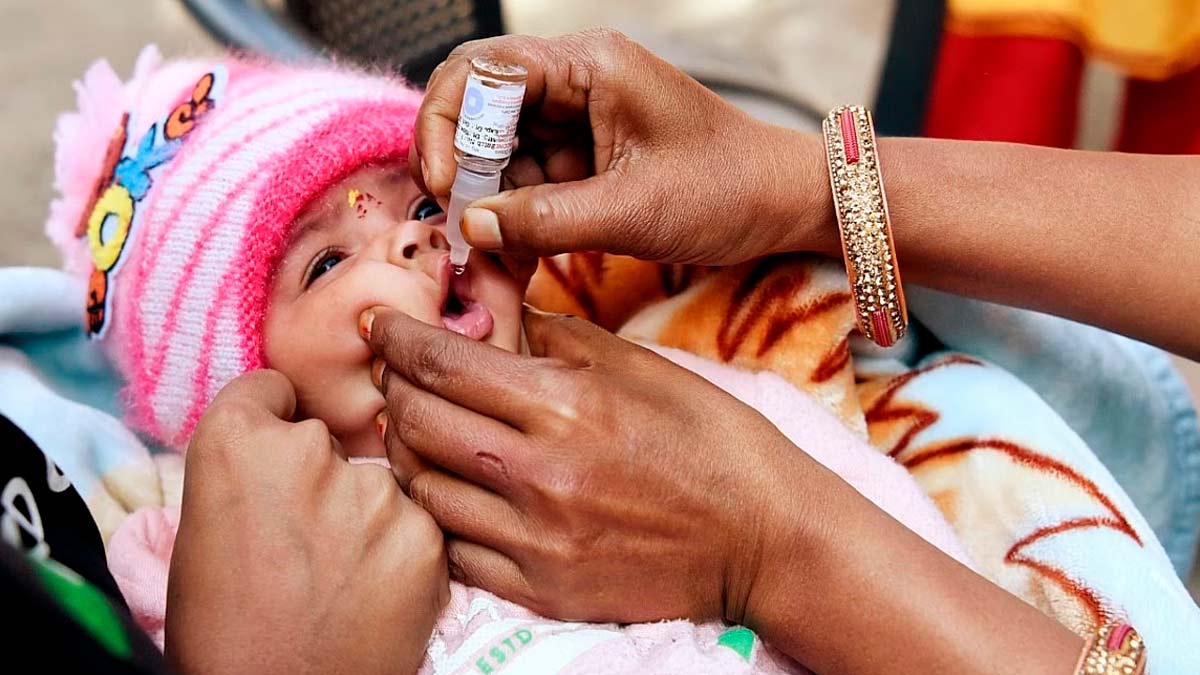
World Polio Day is observed annually on October 24th to highlight the advancements in the fight against polio and to increase public awareness of the value of immunisation. Polio is a highly contagious virus that can paralyse people or possibly kill them. Even though India was deemed polio-free by the World Health Organization (WHO) in 2014, polio vaccination is crucial since it remains a hazard in various regions of the world.
Table of Content:-
To learn in detail about the need for polio vaccination even though India is declared polio-free, we spoke to Dr Shrey Kumar Srivastav, Senior Consultant, Sharda Hospital. Here is what he shared with us.
The Importance of Polio Vaccination
Vaccination is considered to be the most effective way to prevent polio. Polio vaccines are administered in childhood, they are safe and effective, and can protect your child from this devastating disease.
There are two types of polio vaccines: the Oral Polio Vaccine (OPV) and the Inactivated Polio Vaccine (IPV). Both the vaccines prove their efficacy, but IPV is now the preferred vaccine in India.

OPV contains a weakened live virus, is administered orally and offers strong herd immunity but carries a rare risk of vaccine-associated paralytic polio. On the other hand, IPV contains a killed virus, and is injected. IPV is known to be a safer option for immunocompromised individuals but provides less herd immunity.
Also Read: Breast Cancer Awareness Month: Expert Shares What To Do When You Feel A Lump In Your Breast
Why Vaccination Matters, Even After the Threat is Gone?
“Even though India has been polio-free for almost 13 years, it is important to continue vaccinating children against polio,” Dr Shrey shared.
“This is because polio is still endemic in some parts of the world, and there is always a risk of the virus being imported into India. Additionally, vaccination helps to maintain herd immunity, which means that the virus is less likely to spread in the community,” he added.
India has made significant strides in polio eradication, with a vaccination coverage of 83.4%, surpassing the global average by over 10 percentage points. The country employs a comprehensive approach using both oral and injectable polio vaccines. In line with the WHO's ambitious goal of eradicating polio by 2026, India's continued efforts and strong vaccination coverage are crucial in achieving this milestone.
Polio Vaccine Administration in India
“Children in India are given both the IPV and the OPV. OPV is given at birth, six, ten, and fourteen weeks, and booster doses are given at 16-18 months and 4-6 years. IPV is administered at six and 14 weeks, and then again at 15–18 months,” Dr Shrey informed.
Conclusion
Polio is a preventable disease, and vaccination is the key to preventing it. Remember vaccinating your child not only protects them individually but also contributes to the broader effort of keeping polio eradicated in India and globally.
[Disclaimer: This article contains information provided by an expert and is for informational purposes only. Hence, we advise you to consult your own professional if you are dealing with any health issues to avoid complications.]
Also watch this video
How we keep this article up to date:
We work with experts and keep a close eye on the latest in health and wellness. Whenever there is a new research or helpful information, we update our articles with accurate and useful advice.
Current Version